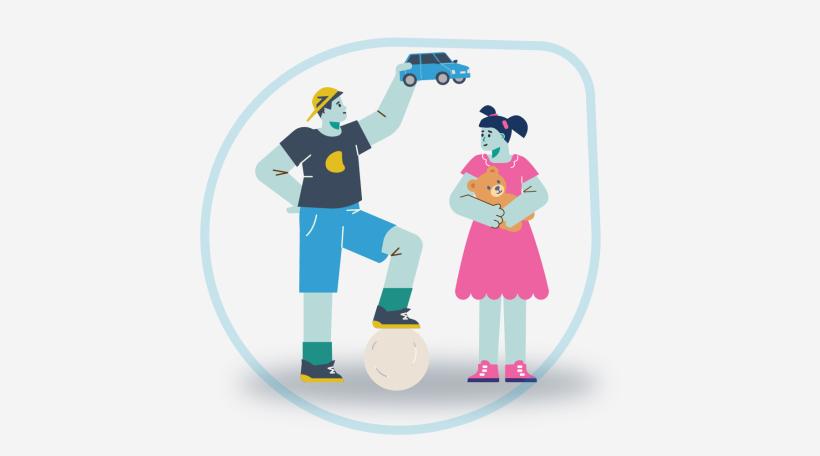
Today is International Men’s Day, raising awareness of often-overlooked issues. It's a call for action to address the unique gender equality challenges men and boys face worldwide.
And this year the focus is on men’s health.
It coincides with Movember. This month of moustache growing raises cash and awareness for prostate and testicular cancers, and male suicide.
Beyond this, International Men’s Day is a time to promote gender equality. It reminds us that positive male role models help create a better and safer place for all.
It's a time to recognise that gender equality is a shared goal. And our journey towards it requires the active involvement of men and boys.
EIGE's research shows how gender roles affect men, too. Our Gender Equality Index highlights areas where men fall behind.
This is often due to toxic expectations of manhood.
In health, for example, men tend to live shorter lives than women. Higher rates of smoking, drinking, and risky activities all play a part.
Men face higher suicide rates, disabilities, and specific outcomes during crises like COVID-19.
We find men tend to be less involved in childcare. Fewer take parental leave, and many rely more on external childcare services than on family care.
Good initiatives
Tackling these challenges is vital to achieving gender equality. The Danish Presidency recognises this with its Action Plan for Gender Equality for Men and Boys (2024).
The Danish plan positions men and boys as allies in gender equality. It offers a forward-thinking approach that fosters a balanced, supportive society.
And it does this without losing focus on women’s rights. The plan presents a vision of a society that empowers both women and men to thrive.
The plan outlines initiatives to support men and boys across four areas on the frontline of gender equality:
Education and Work:
Across Europe, boys generally perform less well in education than girls. More boys need special education or leave school without qualifications.
Delayed school starts, teaching that suits varied learning styles, and vocational pathways can improve outcomes for boys.
Family and Parenthood:
Fathers need to play an equal role in raising children. Encouraging men to take parental leave and share care responsibilities will help break traditional stereotypes.
Supporting the father’s role in family life will also benefit children, leading to better outcomes in child development and stronger family bonds.
Health and Wellbeing:
Men are often less likely to seek mental health care due to societal norms around masculinity, and they suffer higher suicide rates.
Community-based support and open discussions on mental health aim to reduce the stigma men face and encourage them to seek help when needed.
Reducing Vulnerability and Social Exclusion:
Men are disproportionately affected by issues of homelessness, substance abuse, and involvement in the criminal justice system.
Early intervention, support for anger management, and programs that aid reintegration for men released from incarceration is a safety net for men who are socially excluded.
Chat & Chill with us at the Forum
The toxic impact of these gender gaps results in real-world harm. That’s why we're dedicating time to the topic at this year's Gender Equality Forum.
Our Chat & Chill session will help encourage the active participation of men and boys. It will showcase good practices in male allyship.
We will consider the unique challenges facing men and boys. And use that understanding to foster a culture of equal opportunity.
We will explore a more holistic and sustainable vision of gender equality. One that supports women and men, while acknowledging the different challenges each faces,
So, are men and boys essential allies in the movement for gender equality? We want to hear your thoughts on this balanced approach to equality.
The session will be streamed live. Sign up to join us and help to make sure men don’t feel excluded from the conversation.
Together we can look beyond International Men’s Day and think about equality 24/7.
Read more about the session "Boys and men as allies in achieving gender equality"





